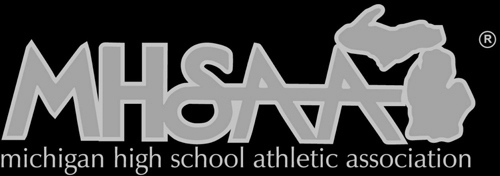
Nonfaculty Coaches
June 18, 2012
Since the so-called heyday of school sports in the 1950s, when you could count on more talk in a community about its few high school teams than about all the college and professional sports teams in the country combined, some things have improved – diversity and safety, for example; but some things have not met the high ideals hoped for in educational athletics.
During the explosive growth period of school sports in the 1970s and 1980s, when girls programs were introduced or reintroduced to schools and well-established community programs were added to the school sports curriculum, schools in almost every state had to backpedal from the ideal that only trained educators – certified teachers – could coach interscholastic athletic teams. (In Michigan, except for two years in the mid 1950s when certified teachers were required, the rules only urge that coaches be certified teachers.)
While the number of sports and levels of teams have greatly expanded these past five or six decades, the coaching pool within the faculty of a school district has not. Furthermore, teachers’ salaries improved so much that coaching stipends became less necessary to supplement teachers’ incomes, so teachers “volunteered” less readily to serve as coaches for a second and third sport.
Moreover, the coaching demands for one sport increased out of season, interfering with a person’s availability to help coach second and third sports during the school year. This was commonplace in the sports that moved from the community into schools, but the out of season demands have increased significantly for traditional school sports as well.
There is irony that community youth sports programs not only have provided school districts with a pool of informed and interested people to serve as coaches, but they have also increased the demands on coaches so much out of season that coaches must specialize in a single sport and therefore are less available to assist with the many different sports and levels of teams that school districts struggle to provide students.
It is estimated now that more than half of all high school coaches do not work in the school building where they coach, which can create communications challenges for schools. A smaller but growing number of high school coaches do not work at all in the field of education, which can create philosophical problems as well. Not always, of course; in fact, many nonfaculty coaches are a rich and increasingly indispensible blessing for school sports.

In Memoriam: Haack, Locke, Newton
By
Geoff Kimmerly
MHSAA.com senior editor
August 17, 2016
From time to time, we receive news of the passing of people who have played major roles in the near-century history of MHSAA athletics. Below are notes on a few who left us this summer but made major contributions.
Ray Haack, St. Joseph – Haack taught and coached at Reese High School before serving in the U.S. Navy during World War II, then was employed by St. Joseph High School from 1946-86. According to his obituary, Haack built a 198-86 record coaching the Bears’ boys basketball team from 1951-66. He led the 1951 and 1953 teams to Class B championships. He died July 6 at the age of 96.
Ralph Locke, Albion – Locke was an MHSAA registered official for 38 years, for basketball during his entire tenure and for football beginning in 1986. He officiated a number of MHSAA tournament contests, mostly in football but also boys basketball, and worked Semifinal and the Class AA Final for football (Detroit Catholic Central 27, Rockford 23) in 1998. He died July 29 at age 61.
Bill Newton, Farmington – Newton led Farmington to an unexpected first MHSAA ice hockey championship in 2014, his first season as varsity coach, as his team upset reigning champion Bloomfield Hills Cranbrook Kingswood in the Quarterfinal. His teams finished 44-33-4 over three seasons with a league title this past winter, and he resigned at the end of last season in part to continue his fight against cancer, according to a report by the Farmington Observer & Eccentric. Newton had previously coached as a varsity assistant for four years and junior varsity assistant for two, the report said. He died Aug. 6 at age 55.

